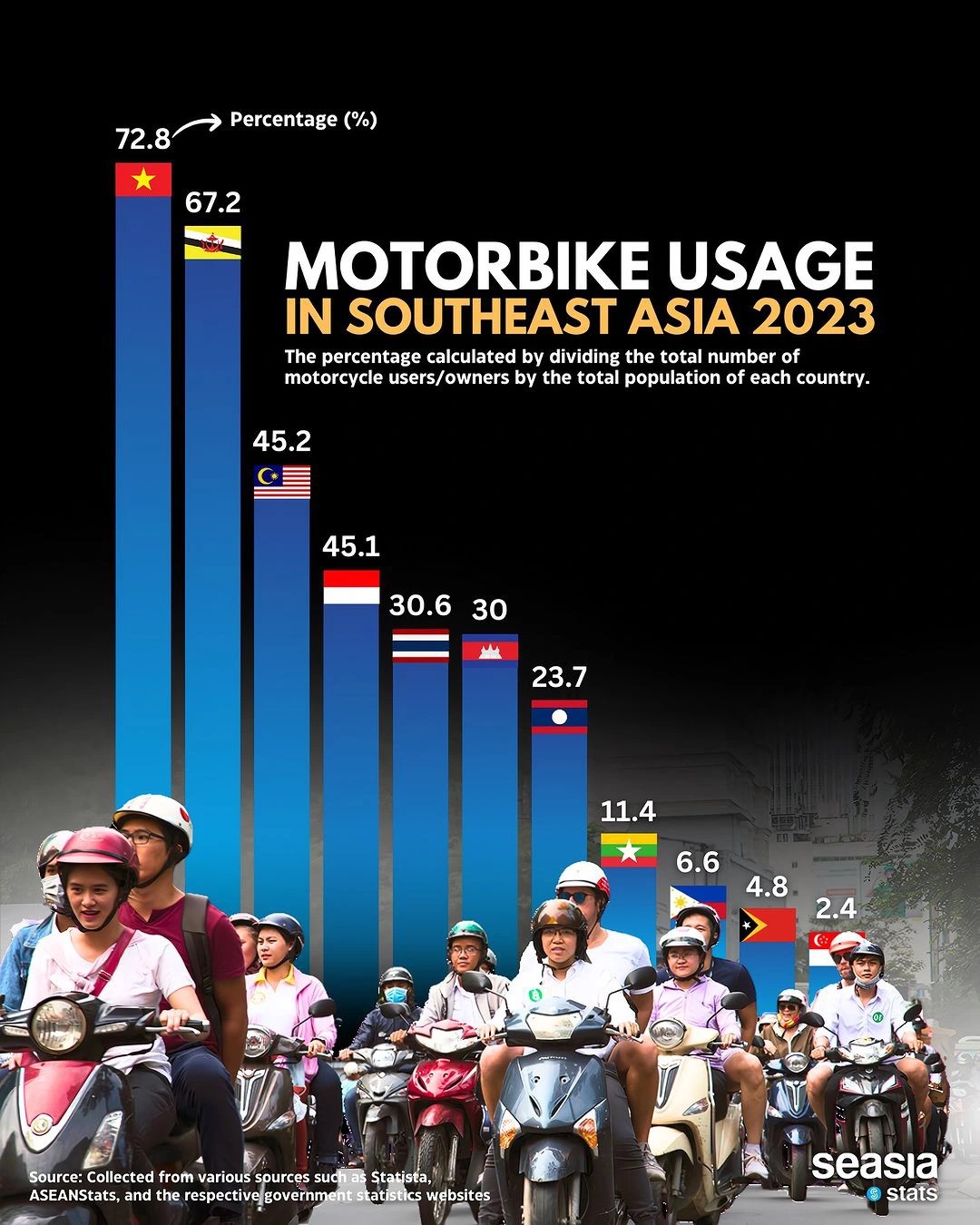Data released by Jakarta-based Seasia showed that nearly 73 percent of Vietnamese citizens rely on motorbikes as a mode of transport, making Vietnam the leader in motorbike usage amongst Southeast Asian countries.
According to Seasia’s report, the popularity of motorbikes in Vietnam can be attributed to low cost, flexibility, and energy efficiency.
The report also highlighted the dominance of motorbikes in Vietnam compared to other Southeast Asian nations.
Remarkably, 72.8 percent of Vietnam's population use motorbikes.
In Singapore, that number plummets to 2.4 percent, making Vietnamese individuals 30 times more likely to use two-wheelers than their Singaporean counterparts.
Brunei, with a 67.2 percent usage rate, secured the second spot on the list, though that number is expected to change in light of the country’s decision to increase its motorbike consumption tax from 20 percent to 30 percent in July this year.
Malaysia rounded out the top three with a 45.3 percent motorbike usage rate.
|
|
| Statistics on motorbike usage rates in Southeast Asian countries according to Seasia's survey |
Southeast Asia leads the way in motorcycle growth
Seasia attributed the widespread adoption of motorbikes in Vietnam to their affordability, both in terms of the initial purchase price and ongoing maintenance costs, in comparison to automobiles.
The compact and maneuverable size of motorbikes also makes them well-suited to navigate heavy traffic and narrow spaces in Vietnam's bustling cities.
Seasia further underscored the energy efficiency of motorbikes, highlighting that their lower emissions compared to cars play a significant role in meeting environmental goals.
Looking at broader statistics, a 2015 report by Pew Research Center indicated that Vietnam ranked second in Southeast Asia in terms of the percentage of households using motorbikes (86 percent), just behind Thailand (87 percent).
Other ASEAN countries, including Indonesia, Malaysia, and the Philippines, also featured prominently among the top ten nations with high motorbike ownership rates.
Southeast Asia is a global hub for motorbike manufacturing, with a seven-percent year-on-year increase in sales, as reported by Motorcycles Data in the first nine months of 2023 -- the highest worldwide.
Indonesia claimed the largest market share, followed by Vietnam, the Philippines, Thailand, and Malaysia.
|
|
| Southeast Asia holds the leading position in the global motorbike market. Photo: Adventure You |
Despite a downturn in the economy which affected motorbike sales in Vietnam during the first nine months of this year, there has been a gradual rebound in recent months, especially in the lead-up to Tet holiday, Vietnam's most important traditional festival due in February.
Like us on Facebook or follow us on Twitter to get the latest news about Vietnam!




Max: 1500 characters
There are no comments yet. Be the first to comment.